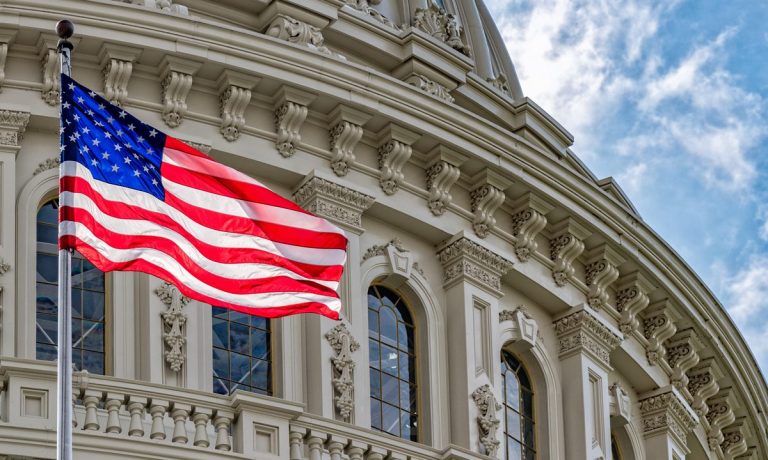Reports: House Committee Close to Vote on ‘Payments Stablecoin’ Bill

Stablecoins will become known as “payments stablecoins” under the terms of a new regulatory bill the House Financial Services is planning to unveil next week.
According to multiple reports, bipartisan leaders on the committee have come to an agreement on the core terms of the bill, which foresees the dollar-pegged cryptocurrencies becoming a mainstream payments rail. As much as 95% of all stablecoin transactions are currently used in trading other cryptocurrencies at present, Securities and Exchange Commission (SEC) Chairman Gary Gensler said last week.
While sponsors of a larger bill creating a broad regulatory framework for cryptocurrencies conceded this week that it will have to wait until 2023, the urgency brought on by the $48 billion collapse of the Terra/LUNA stablecoin ecosystem in a week-long run in May seems to have led to wide agreement that a stablecoin framework can’t wait.
Read more: Unbacked Stablecoin’s Collapse Lost $48B; Crypto Says ‘Let’s Launch Two More’
House Financial Services Committee Chairwoman Maxine Waters, D-Calif., and ranking minority member Patrick McHenry, R-N.C., reportedly plan to formally markup the bill on Wednesday.
They plan to share details of the agreement with other committee members on Friday, so there’s certainly the potential for delays, with one Republican telling Bloomberg it’s “totally an open question” whether his party would support the bill agreed upon by the leadership.
Among the key aspects of the agreement is the unsurprising requirement that all stablecoins will have to be backed 100% by dollars or highly liquid, short-term Treasuries. They would be licensed and monitored by the Federal Reserve, Bloomberg reported. This would seem to ban the use of stablecoins that use arbitrage and other algorithm-based methods of defending a token’s dollar peg, but nothing is set in stone yet.
Another notable point is that regulators would have the power to mandate interoperability between stablecoins in order to prevent anti-competitive behavior, CoinDesk said.
See more: Global Regulators Call for Interoperable Stablecoins, CBDCs
Banking Rules
There has also apparently been an agreement on the most contentious part of the bill agreement that non-bank financial services companies will be able to issue stablecoins as long as they meet liquidity and capital requirements.
See also: US Treasury’s Liang Offers Path for Nonbank Stablecoins
In a November report, the President’s Working Group (PWG) on Financial Stability had called for stablecoin issuance to be restricted to federally insured institutions. But Republicans pushed back hard, saying that limiting it to insured depositary institutions (IDIs) would unreasonably exclude state-chartered institutions.
However, non-IDI stablecoin issuers would likely be banned from loaning stablecoins, The Block said.
While the Biden Administration’s broad cryptocurrency framework recommendations are not due until September, The Block added that sources report the Treasury Department had brokered this part of the deal. It added that the SEC was upset, as it has come to the conclusion that stablecoins are money market funds — which it regulates.
On Monday, Undersecretary of the Treasury for Domestic Finance Nellie Liang said at a Financial Services Forum event that the PWG’s recommendation had “some flexibility,” adding that what the department wanted was to “bring it into the banking system — not necessarily deposit insurance.”
She also trampled on the SEC’s position, adding that “these are more than money market funds,” CoinDesk said. That means they require a new regulatory regime, she added.
Earlier, she had said digit assets have the “potential to really fundamentally reform payments.”
The House agreement does exclude commercial firms, meaning giants like Walmart, Apple, Amazon, Google and especially Facebook — whose failed Libra/Diem experiment effectively launched stablecoins onto the world stage — would not be able to issue them.
For all PYMNTS Crypto coverage, subscribe to the daily Crypto Newsletter.